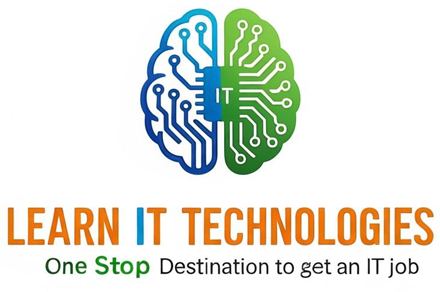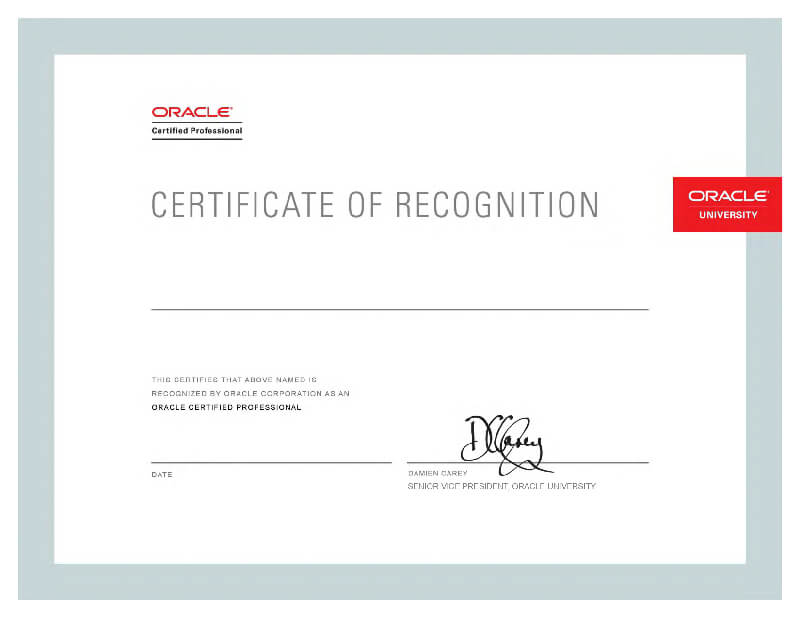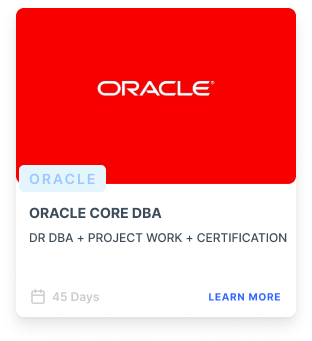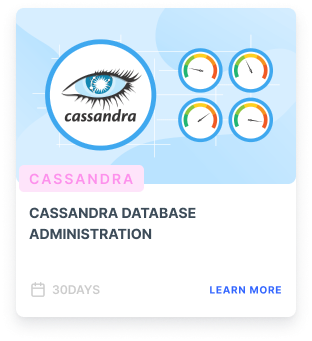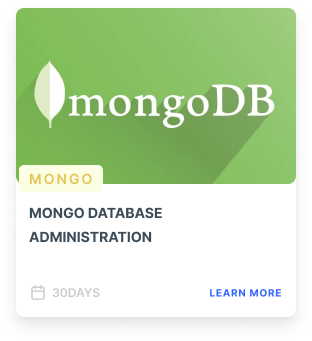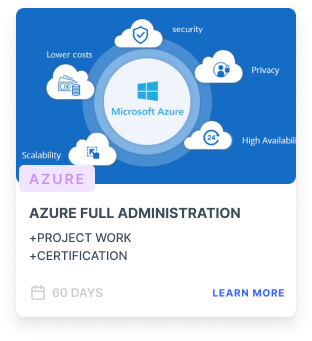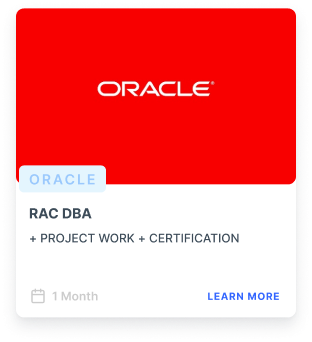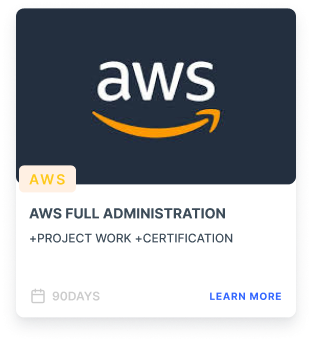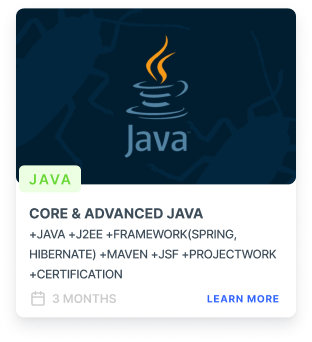
CORE AND ADVANCED JAVA
+JAVA +J2EE
+ FRAMEWORK (SPRING, HIBERNATE) + MAVEN + JSF
+ PROJECTWORK + CERTIFICATION
Java Course content is carefully crafted to match the current industry requirements. The topics covered in the Advanced JAVA Course include the latest and best real-time examples that are aimed to help students in getting the right job so after the completion of Training.
Mode of Class
- Online / Offline
Course Duration
- 90 days
Job Placed Students
- 300+
Over View
Cloud Professional Technology is one of the best Core Java training institutes in Hyderabad . Our trainers are highly experienced industrial professionals. Currently, they are all working in top rated MNCs and Corporates, carrying years of industry experience in their particular technologies. In this Core &AdvJava training, you will be exposed to a differentiated learning environment. Our training program includes each and every module with deep programming knowledge and lots more into Real time scenarios. We assign dedicated real-time projects weekly basis, which ensures all our students have real-time hands-on practice. This will surely help in building a strong IT career.
You will surely enhance your technical skills and confidence with this Java training. Our connections and networks in the job market will help you land on your dream job easily. Compared to other training institutes, we are offering the best Java training course in Hyderabad, where you can get the best Java training and placement guidance for reasonable and affordable cost
Comprehensive Curriculum
An interactive curriculum is designed to build the capacity of all learners and practitioners to provide the best learning experience. This new resource, Enhancing and Implementing Learning online, includes a series of sessions with interactive modules that enable practitioners to determine what assets they already have in place, identify gaps, and outline concrete next steps for creating or strengthening their skills.
Personalised Mentorship
Cloud Professional Technologies is an online program crafted to guide as academic development and help them make informed decisions about their career. This Mentorship Programme identifies the strengths, weaknesses, and interests of practitioners and provides them with the necessary assistance for certification programs and job assistance. The emphasis is on helping people discover their inherent potential by guiding them through their journey, helping them choosing the best career path.
Dedicated Carrer Assistance
Amid an increasingly demanding economic and business climate, job placement support has become an important duty for Institute. Cloud Professional Technologies makes efforts toward career design and job placement support from the early stages of course, based on a clear understanding of the types of job candidates who are sought by employers, and who are in step with times. We offer a wide range of courses for engaging in more practical job-seeking activities and strategies for employment interviews
Pre Requirments
- NO Prerequisites to learn Core Java.
- Basic understanding of programming syntax and C/C++ will be beneficial.
- If you are already familiar with the above, this course will be easy for you to learn. Otherwise, our experienced professionals are here to teach you and coach you right from Core Java fundamentals.
Core Java Syllabus (Total Duration-35hrs)
Module 1: Introduction (Duration-0.5hr)
• Java Why? What? How? When? Where?
• Different Java Versions.
• How Java is different from other Technologies
Module 2: Introduction To Java Programming Environment (Duration-1hr)
• How to Install & set Path.
• A Simple Java Program
• Compiling & executing Java Program
• Phases of Java Program
• Analysis of a Java Program
• Understanding Syntax and Semantic Error,
• Runtime Exception
• Name of a Java Source File
• Platform Independency
• Java Technology (JDK, JRE, JVM, JIT)
• Features of Java
• Text Editors
• Consoles
Module 3: Fundamentals of Java Programming (Duration-1hr)
• Naming convention of Java language
• Comments
• Statements
• Blocks (Static, Non-static/instance)
• Identifiers
• Keywords
• Literals
• Primitive Data Types, Range
• Reference (User defined) Data type
• Variables (Primitive, Reference)
•Type Casting, Default Value
• Operators
• Program/Interview questions
Module 4: Control Structures (Duration-1hr)
• Working with Control Structures
• Types of Control Structures
• Decision Control Structure (if, if-else, if else if, switch –case)
• Repetition Control Structure (do –while,while, for)
• Program/Interview questions
Module 5: Input Fundamentals And Datatypes In Java (Duration-2hrs)
• Java program inputs from Keyboard
• Methods of Keyboard inputs
• Scanner, Buffered Reader
• Problem Solving
• Java Array
• What is Array
• Array Declaration in java vs C and C++.
• Instantiation of an Array
• String vs character array.Accessing Array
• Elements, Default Value, for-each loop, varargs
• Length of an Array (What is –Array Index Out Of Bounds Exception)
• Increasing, Decreasing the Size and Copy of an Array
• Multi-Dimensional Arrays
• Program/Interview questions
• Program/Interview questions Difference between C and C++ with Java
• Application Compilation and Run
• Interview related Question and Answer
Module 6: Object Oriented Programming (Oops Concepts In Deep) (Duration-4hrs)
• Procedural Vs Object Oriented Program
• Different type of Program Procedural Vs Object Oriented.
• Top Down Vs Bottom Up Approach
• Introduction to Object Oriented
• Abstraction, Encapsulation, Inheritance,
• Polymorphism.
• Introduction to Classes and Objects
• Custom Class Definition
• Instance and Static Variables
• Different ways to create Object Instance
• Instance Variable and it’s role in a Class
• Constructors, types of Constructor,
• Constructor Rule, Constructor Overloading
• Static Variable and it’s use.
• Methods and their behavior.
• Constructor vs Methods
• Constructors
• “this” Keyword
• Java Access Modifiers (and Specifiers)
• Programming Interview related Question and Answer
• Call by value, Call by reference
Module 7: Command-Line Arguments (Duration-1hr)
• What is a Command-Line Argument?
• Java Application with Command-Line Arguments
• Conversion of Command-Line Arguments
• Passing Command-Line Arguments
• Using methods (Static , Non Static)
Module 8: Integrated Development Environment (Duration-0.5hr)
• Using various Editors
• Program Compilation, Execution in Editor
• Using Eclipse IDE
• Project Set Up
• Source File Generation
• Application Compilation and Run
Module 9: Inner Class (Duration-1hr)
• First View of Inner Class
• Outer Class Access
• Types of Inner Class
Module 10: Inheritance (Duration-2hrs)
• Complete concepts of Inheritance
• Sub-Classes
• Object Classes
• Constructor Calling Chain
• The use of “super” Keyword
• The use of “private” keyword inheritance.
• Reference Casting
Module 11: Abstract Classes and Inheritance (Duration-2hrs)
• Introduction to Abstract Methods
• Abstract Classes and Interface
• Interface as a Type
• Interface v/s Abstract Class
• Interface Definition
• Interface Implementation
• Multiple Interfaces’ Implementation
• Interfaces’ Inheritance
• How to create object of Interface
Module 12: Polymorphism (Duration-1hr)
• Introduction to Polymorphism
• Types of Polymorphism
• Overloading Methods
• Overriding Methods
• Hiding Methods
• Final Class and Method
• Polymorphic Behavior in Java
• Benefits of Polymorphism
• “Is-A” vs “Has-A”
• Association Vs Aggregation
• Interview related Question and Answer.
Module 13: Package (Duration-2hrs)
• Package and Class path and its use
• First look into Packages
• Benefits of Packages
• Package Creation and Use
• First look into Class path
• Class path Setting
• Class Import
• Package Import
• Role of public, protected, default and private w.r.t package
• Namespace Management
• Package vs. Header File
• Creating and Using the Sub Package
• Sources and Class Files Management
Module 14: Using Predefined Package & Other Classes (Duration-2hrs)
• Java.lang Hierarchy
• Object class and using toString(), equals(),hashCode(), clone(), finalize() etc
• Using Runtime Class, Process Class to play music, video from Java Program
• Primitives and Wrapper Class
• Math Class
• String, StringBuffer, StringBuilder Class
• String Constant Pool
• Various usage and methods of String,StringBuffer, StringBuilder
• Wrapper Classes
• System Class using gc(), exit(), etc.
Module 15: New Concepts In Package (Duration-1hr)
• Auto boxing and Auto unboxing
• Static import.
• Instance of operator.
• Enum and its use in Java
• Working with jar
Module 16: Garbage Collection (Duration-0.5hr)
• Garbage Collection Introduction
• Advantages of Garbage Collection
• Garbage Collection Procedure
• Java API
• Interview related Question and Answer
Module 17: Exception Handling (Duration-2hrs)
• Introduction to Exceptions
• Effects of Exceptions
• Exception Handling Mechanism
• Try, catch, finally blocks
• Rules of Exception Handling
• Exception class Hierarchy, Checked &
• Unchecked Exception
• Throw & throws keyword
• Custom Exception Class
• Chained Exception.
• Resource handling & multiple exception class
• Interview related Question and Answer.
Module 18: Multithreading (Duration-3hrs)
• Introduction
• Advantages
• Creating a Thread by inheriting from Thread class
• Run() and start() method.
• Constructor of Thread Class
• Various Method of Thread Class
• Runnable Interface Implementation
• Thread Group
• Thread States and Priorities
• Synchronization method, block
• Class & Object Level Lock
• Deadlock & its Prevention
• Inter thread Synchronization
• Life Cycle of Thread
• Deprecated methods : stop(), suspend(),resume(), etc
• Interview related Question and Answer
Module 19: Input and Output Streams (Duration-3hrs)
• Java I/O Stream
• I/O Stream – Introduction
• Types of Streams
• Stream Class Hierarchy
• Using File Class
• Copy and Paste the content of a file
• Byte Streams vs Character Streams
• Text File vs Binary File
• Character Reading from Keyboard by Input Stream Reader
• Reading a Line/String from Keyboard by Buffered Reader
• Standard I/O Streams Using Data Streams to read/write
• primitive data
• PrintStream vs PrintWriter Using StreamTokenizer and RandomAccessFile
• Interview related Question and Answer
Module 20: Serialization (Duration-0.5hr)
• Introduction to Serialization
• Using Object Streams to read/write object
• Transient Keyword
• Serialization Process
• Deserialization Process
• Interview related Question and Answer
Module 21: Collection Framework (Duration-3hrs)
• Generics(Templates)
• What is generic
• Creating User defined Generic classes
• The java.util package
• Collection
• What is Collection Framework
• List, Set & Map interfaces
• Using Vector, Array List, Stack,
• Linked List, etc.
• Using Collections class for sorting
• Using Hashtable, Hash Map, Tree Map,
• SortedMap, LinkedHashMap etc.
• Iterator, Enumerator.
• Using Queue, Deque, SortedQue, etc.
• Using HashSet, TreeSet, LinkedHashSet etc
• Using Random class
• Using Properties in a Java Program
• Using user defined class for DataStructure
• Using Date and Formatting Date class.
• Interview related Question and Answer
Module 22: Java 8/9/10 Features (Duration-1hr)
Advanced Java Syllabus (Total Duration-30hrs)
Module 1: JDBC (Duration-3hrs)
• Introduction to JDBC
• Databases and Drivers
• Types of Driver
• Loading a driver class file
• Establishing the Connection to different
• Database with different Driver
• Executing SQL queries by ResultSet,Statements , PreparedStatment interface.
• Using CallableStatement
• Transaction Management & BatchUpdate
• Programs/Interview related Question and Answer
Module 2: JSP (Duration-5hrs)
• Basics Of Jsp
Life cycle of JSP
JSP API
JSP in Eclipse and other IDE’s
Programs/Interview related Question and Answer.
Scripting Elements
scriptlet tag
expression tag
declaration tag
Programs/Interview related Question and Answer.
• Implicit Objects
out
request
response
config
application
session
pageContext
page
exception
Programs/Interview related Question and Answer.
• Directive Elements
page directive
include directive
taglib directive
Programs/Interview related Question and Answer.
• Exception Handling
• Action Elements
jsp:forward
jsp:include
Bean class
jsp:useBean
jsp:setProperty & jsp:getProperty
Displaying applet in JSP
Expression Language
What is expression and how to use it
Define expression and use over the service flow
The way to be achieve same in JSP
• Mvc In Jsp
MVC pattern
Working flow implementation of MVC
CRUD operation using MVC
Design a real time web application using MVC
• JSTL
Discussion on the tag library
How to implement and use
• Custom Tags
Custom Tag : What and Why?
Custom Tag API?
Custom Tag Example
Attributes
Iteration
Custom URI
Module 3: Servlet (Duration-7hrs)
• Basics Of Jsp
Life cycle of JSP
JSP API
JSP in Eclipse and other IDE’s
Programs/Interview related Question and Answer.
• Scripting Elements
scriptlet tag
expression tag
declaration tag
Programs/Interview related Question and Answer.
• Implicit Objects
out
request
response
config
application
session
pageContext
page
exception
Programs/Interview related Question and Answer.
• Directive Elements
page directive
include directive
taglib directive
Programs/Interview related Question and Answer.
• Exception Handling
• Action Elements
jsp:forward
jsp:include
Bean class
jsp:useBean
jsp:setProperty & jsp:getProperty
Displaying applet in JSP
• Expression Language
What is expression and how to use it
Define expression and use over the service flow
The way to be achieve same in JSP
• Mvc In Jsp
MVC pattern
Working flow implementation of MVC
CRUD operation using MVC• Basics of Servlet
• Servlet: What and Why?
• Basics of Web
• Servlet API
• Servlet Interface
• GenericServlet
• HttpServlet
• Servlet Life Cycle
• Working with Apache Tomcat Server
• Steps to create a servlet in Tomcat
• How servlet works?
• servlet in Myeclipse
• servlet in Eclipse
• servlet in Netbeans
• Servlet request
Servlet Request methods
Registration example with DB
• Servlet Collaboration
Request Dispatcher
send Redirect
• Servlet Configure
Servlet Configure methods
Servlet Configure example
• Servlet Context
Servlet Context methods
Servlet Context example
• Session Tracking
Cookies
Hidden Form Field
URL Rewriting
HttpSession
Design a real time web application using MVC
• JSTL
Discussion on the tag library
How to implement and use
• Custom Tags
Custom Tag : What and Why?
Custom Tag API?
Custom Tag Example
Attributes
Iteration
Custom URI
Module 4: Concurrent and implementation of collection (Duration-2hrs)
• Implemenation of ArrayList
• Implemenation of LinkedList
• Implemenation of HashMap
• Implementation of Queue/PriorityQueue/Deque
Module 5: Advanced Multi-Threading (Duration-3hrs)
• Implemenation of Executor pool service and working mechanism with real time
• Big file(Single , multiple ) processing using multiple thread
• Implemenation to achieve thread class and runnable interface
Module 6: Javamail Api (Duration-2hrs)
• Sending Email
• Sending email through Gmail server
• Receiving Email
• Sending HTML content
Module 7: Design Pattern (Duration-2hrs)
• Singleton
• DAO
• DTO
• MVC
• Front Controller
• Factory Method
• Abstract
• etc
Module 8: Junit (Duration-1hr)
• JUnit: What and Why?
• Annotations used in JUnit
• Assert class
• Test Cases
Module 9: Maven (Duration-1hr)
• Maven: What and Why?
• Ant Vs Maven
• How to install Maven?
• Maven Repository
• Understanding pom.xml
• Maven Example
• Maven Web App Example
• Maven using Eclipse
Module 10: Project Guidance (Duration-4hrs) + Project assignment
SPRING FRAME WORK
Environment setup using maven
• Setting maven dependencies in Eclipse
• Configuring Hibernate properties
IOC container and dependency injection
Spring Components
• Singleton, Prototype & Lazy Objects
<br /> Building Spring Standalone Project
• Working with Class, Objects etc in XML
• Using Property Arguments
• Using Constructor Arguments
• Using Ref Arguments
<br /> Autowiring & Types
<br /> Collections in XML
• List
• Set
• Map
• Properties
Using Properties file
• Display – For internationalization
• Exception Handling – Creating dynamic exception messages
Spring Validation API’s
JSF JDBC Connectivity
<br /> Spring JDBC
• CRUD operations
Spring MVC
• Configuration
• Dynamic URL & Dynamic Parameters
• SEO friendly URL’s
• Using JSP forms
• Form navigation
• JSTL integration
• Spring forms
• Bootstrap integration
• Integrating validation API
• JDBC integration in Spring MVC
• Hibernate integration with Spring MVC
• Implementing CRUD operation using JDBC
• Implementing CRUD operation using Hibernate
• Spring MVC Hibernate Project
• Project
Hibernate Contents
Introduction
o Hibernate Introduction
o Hibernate Architecture
o First Hibernate Example
Hibernate with Eclipse
o Hibernate using XML
o Hibernate using Annotation
Hibernate Example
o Hibernate Web application
o Hibernate Generator classes
o Hibernate Dialects
Hibernate Log4j
o Hibernate with Log4j 1
o Hibernate with Log4j 2
Inheritance Mapping
o Inheritance Mapping
o Table Per Hierarchy
o TPH using Annotation
o Table Per Concrete
o TPC using Annotation
o Table Per Subclass
o TPS using Annotation
Hibernate Mapping
o Collection Mapping
o Mapping List
o Mapping Bag
o Mapping Set
o Mapping Map
o One To Many XML
o One To Many Annotation
o Many To Many XML
o Many To Many Annotation
o One To One XML
o One To One Annotation
o Many To One XML
o Many To One Annotation
o Bidirectional
o Lazy Collection
o Component Mapping
Tx Management
o Tx Management
HQL
o HQL
HCQL
o HCQL
Named Query
o Named Query
Hibernate Caching
o Hibernate Caching
Second Level Cache
o Second Level Cache
Integration
o Hibernate and Struts
o Hibernate and Spring
Interview Questions
o Hibernate Interview Questions
JSF Contents
JSF Contents
JSF Introduction
JSF Features
JSF Life Cycle
JSF Managed Beans
JSF Example
JSF UI Components
JSF UI Components
JSF UI Example
JSF h:inputText
JSF h:outputText
JSF h:form
JSF h:commandButton
JSF h:inputTextarea
JSF h:commandLink
JSF h:inputSecret
JSF h:inputHidden
JSF h:inputFile
JSF h:graphicImage
JSF h:message
JSF h:messages
JSF h:datatable
JSF Validation
JSF Validation
JSF f:validateBean
f:validateDoubleRange
JSF f:validateLength
JSF f:validateLongRange
JSF Bean Validation
JSF Bean Validation
JSF Converters
JSF Standard Converters
JSF f:convertDateTime
JSF f:convertNumber
JSF Referencing Bean
JSF Referencing Bean
Facelets
Facelets
Facelets View
Facelets Templates
Composite Components
Web Resources
Relocatable Resources
HTML5 Friendly Markup
JSF JDBC
JSF JDBC Connectivity
JSF CRUD
JSF CRUD Example
"Our JAVA trainers are certified professionals fromSUN MICROSYSTEMS & PHD PG holders from UNIVERSITY OF TEXAS are industry experts having 10+ years of experience”
Check out Other Courses
Get in Touch
We’ll respond for all your queries
Call us : +95 020 58585
+955 343 2702
Email : cpt@learnittechnologies.com
learnittechnologies1@gmail.com
